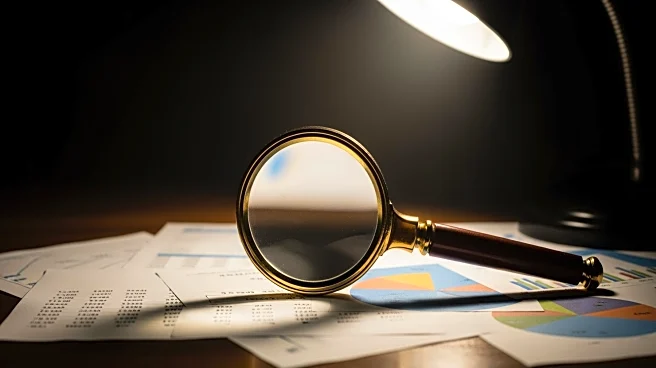What's Happening?
The world has experienced faster climate change than anticipated since the Paris Agreement was established a decade ago. Despite efforts to reduce carbon emissions, the planet's warming has intensified, with significant temperature increases and extreme
weather events becoming more frequent. The annual United Nations climate negotiations in Belem, Brazil, are focusing on the gap between the progress made and the goals set by the Paris Agreement. Scientists and officials acknowledge that while there has been some success in reducing future warming projections, the pace of climate change's impacts has outstripped efforts to mitigate them. The decade since the agreement has seen record temperature hikes, increased natural disasters, and significant ice loss, highlighting the urgent need for more effective climate action.
Why It's Important?
The accelerating impacts of climate change pose significant threats to global economies, societies, and ecosystems. The failure to meet the Paris Agreement's targets could lead to more severe weather events, rising sea levels, and increased economic costs due to natural disasters. The disparity between the progress made and the necessary actions to limit warming to 1.5 degrees Celsius underscores the need for stronger commitments and innovative solutions. The negotiations in Brazil are crucial for reassessing strategies and enhancing international cooperation to address climate change effectively. The outcome of these discussions could influence future policies and investments in renewable energy and sustainable practices, impacting industries and communities worldwide.
What's Next?
Diplomats and climate leaders are expected to continue discussions on enhancing commitments and strategies to combat climate change. The focus will be on bridging the gap between current efforts and the goals set by the Paris Agreement. Countries may need to revise their climate action plans and increase investments in renewable energy and sustainable technologies. The negotiations could lead to new agreements or initiatives aimed at accelerating the transition to a low-carbon economy. Stakeholders, including governments, businesses, and civil society, will likely play a crucial role in implementing these changes and advocating for stronger climate policies.
Beyond the Headlines
The ongoing climate negotiations highlight ethical and cultural dimensions, such as the responsibility of developed nations to support developing countries in their climate efforts. The discussions may also address the disproportionate impact of climate change on vulnerable populations and the need for equitable solutions. Long-term shifts in global energy consumption and technological advancements could be triggered by these negotiations, influencing future economic and environmental policies.
















